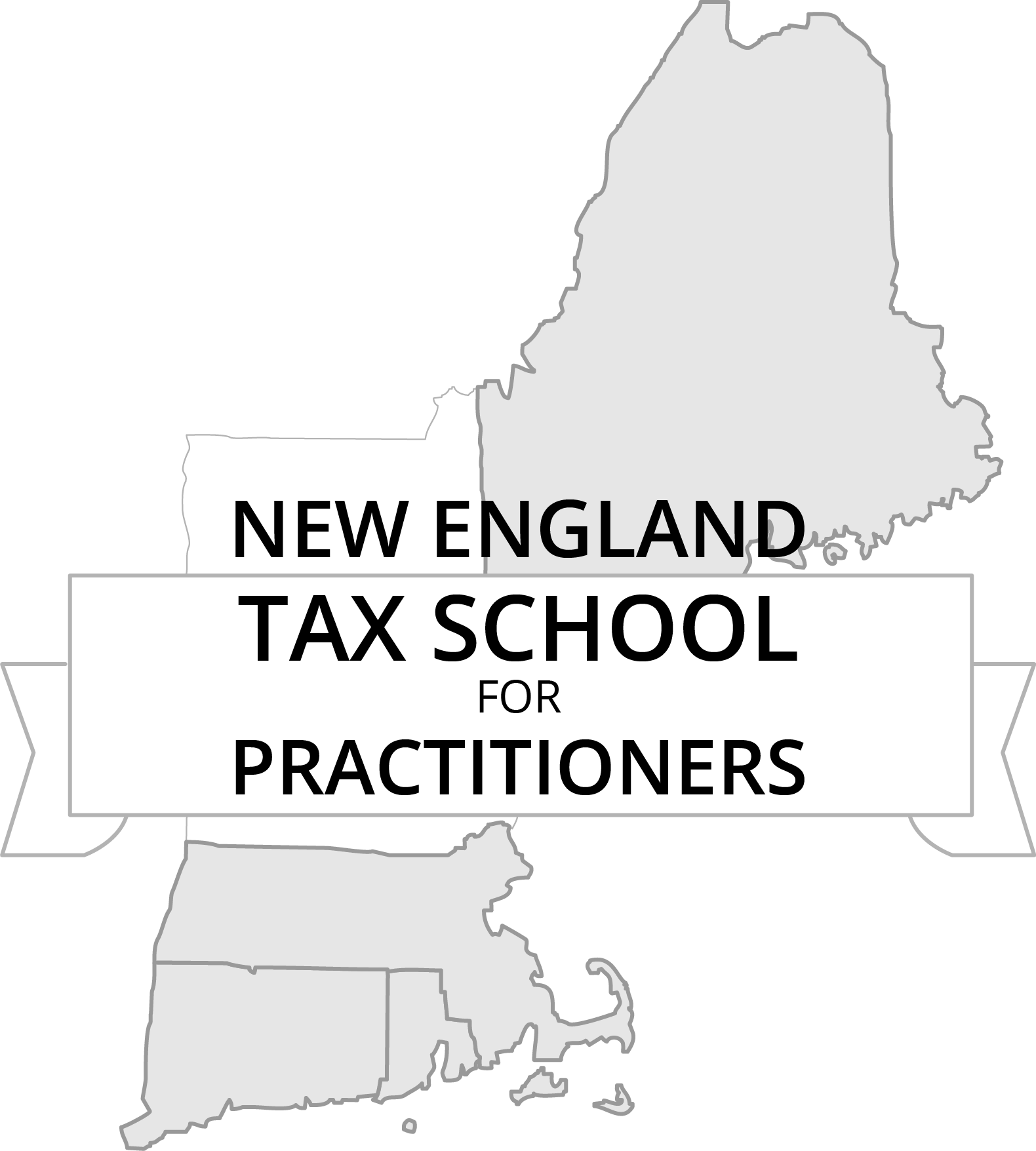(For Preparation of 2024 Individual 1040 Tax Returns)
Annual Federal Tax Refresher
Each year, various limits affecting income tax return preparation and tax planning are affected by inflation-related changes. In addition, new tax laws come into being that may significantly affect taxpayers’ income tax liability. This course will examine many of those changes.
The Annual Federal Tax Refresher course is designed to meet the requirements of the IRS Annual Filing Season Program Record of Completion. It discusses new tax law and recent updates for the upcoming filing season, provides a general tax review, and examines important rules governing tax return preparer ethics, practices and procedures.
Upon completion of this course, a tax return preparer should be able to:
- Apply the inflation-adjusted and other limits to the proper preparation of taxpayers’ income tax returns;
- Recognize third-party network transaction reporting requirements;
- Describe the Direct File Pilot program;
- Understand the SECURE 2.0 Act requirements applicable to designated Roth account catch-up contributions to employer-sponsored retirement plans for higher paid participants;
- Describe the change in designated Roth account distributions brought about by the SECURE 2.0 Act;
- Recognize the federal income tax filing statuses and the criteria for their use;
- Identify the types of income that must be recognized;
- Apply the tax rules to the various credits and adjustments to income available to taxpayers;
- Recognize the penalties that may be imposed on a preparer for failing to meet ethical and practice standards in preparing tax returns; and
- Identify the duties and restrictions imposed on tax preparers under Circular 230.
- Domain – New Tax Law/Recent Updates*
1.1 Annual inflation and cost of living adjustments (Rev. Proc. 2023-34)
1.2 New standard mileage rates (Notice 2024-08)
1.3 Third-Party Network Transaction (Form 1099-K) reporting requirements (FS-2023-27) (IR-2024-33)
1.4 Resume issuing automated reminder notices for balances due for taxable years 2021 and earlier (Notice 2024-07)
1.5 Direct File Pilot Program (Directfile.IRS.gov)
1.6 SECURE 2.0 Act, Section 325, Roth plan distribution rules effective for 2024
1.7 SECURE 2.0 Act, Section 603, Catch-up Contributions effective for 2024 - Domain – General Review
2.1 Filing Status Review (including a reminder for Filing Status qualifying widow(er) now qualifying surviving spouse)
2.2 Taxability of earnings (such as wages, salaries, tips)
2.3 Schedule B: interest, dividends, foreign accounts, and trusts
2.4 Reporting and taxability of retirement income (Social Security benefits, pensions, annuities, 401(k) distributions)
2.5 IRAs (contributions, deductions, distributions and 10% penalty)
2.6 Reporting and taxability of unemployment compensation
2.7 Alimony (divorce agreements executed before 2019; executed or modified after 2018)
2.8 Schedule C, Profit or Loss from Business (Sole Proprietorship)
2.8.1 Determination of gross income & deductions
2.8.2 Business versus hobby
2.8.3 Business use of home (regular vs. simplified method)
2.8.4 Recordkeeping requirements
2.8.5 Entertainment expenses (50% of business meals deductible)
2.8.6 Section 179 expense limits
2.8.7 Depreciation
2.8.7.1 Bonus depreciation (including new 60% limit)
2.8.7.2 Luxury auto depreciation limits
2.8.7.3 Listed property updates
2.9 Schedule D and Form 8949, overview of capital gains and losses
2.10 Standard Deduction
2.11 Schedule A, Itemized deductions
2.11.1 Medical and dental expenses
2.11.2 State and local tax deduction ($10,000 married/$5,000 married filing separate)
2.11.3 Home mortgage interest and home equity loans
2.11.4 Charitable contributions
2.11.4.1 60% AGI limit for cash contributions
2.11.4.2 Contemporaneous written acknowledgment required for contributions of $250 or more (cash or property)
2.11.5 Federally declared disaster area casualty loss deduction (including loss deduction for non-itemizers)
2.11.6 Moving expense deduction suspended and reimbursement taxable (except for active military)
2.11.7 Recordkeeping and documentation of deductions
2.12 Tax credit eligibility (child tax credit, credit for other dependents, child and dependent care tax credit, education tax credits,
earned income tax credit)
2.13 Energy credits (Energy Efficient Home Improvement Credit, Residential Clean Energy Property Credit)
2.14 Clean vehicle credits (IRC 30D(g), 25E(f) and (Rev. Proc. 2023-33)
Annual Federal Tax Refresher (AFTR) Course Outline 2-21-24
2.15 Overview Topics
2.15.1 Tax treatment of the acquisition and disposition of digital assets (Notice 2023-34)
2.15.2 Alternative Minimum Tax (AMT) – exemption/phaseout amounts
2.15.3 QBI deduction (including Form 8995 and Form 8995-A)
2.15.4 Kiddie Tax
2.15.5 Section 529 Plans
2.15.6 Achieving a Better Life Experience (ABLE) account
2.15.7 Cancellation of student debt (when to exclude from income)
2.15.8 Net operating loss (NOL)
2.15.9 Premium Tax Credit, including no income cap through 2025 (Inflation Reduction Act)
2.15.10Employee fringe benefits
2.15.11Depreciation of rental property
2.16 Withholding and estimated tax payments
2.17 Balance due and refund options
2.18 Tax return due dates and filing for extensions - Domain – Practices, Procedures and Professional Responsibility
3.1 Tax-related identity theft (Pub. 5199)
3.2 Safeguarding taxpayer data (Pub. 4557)
3.3 Overview and expiration of Individual Taxpayer Identification Numbers (ITINs) (Pub. 1915)
3.4 Preparer penalties (inflation adjustments to penalty amounts found in (Rev. Proc. 2023-34)
3.5 Tax preparation due diligence (for filing as head of household, earned income tax credit, child tax credit, and American
opportunity tax credit)
3.6 E-file requirements (no pay stub filing, when to get signature form, timing for handling rejects)
3.7 Annual Filing Season Program
3.7.1 Annual Filing Season Program Requirements (Rev. Proc. 2014-42) (Pub. 5227) (Pub. 5646)
3.7.2 Circular 230 and consent to be subject to Circular 230 rules
3.7.3 Limited representation
*Course material should only include the subject areas on the AFTR course outline. New legislation enacted after the publication of
this outline may be voluntarily incorporated into the course. You should test on the most current/accurate material you presented
in the course.
**Please remind course participants to log into their PTIN account and sign the Circular 230 Consent statement to participate and
receive their Annual Filing Season Program – Record of Completion.
